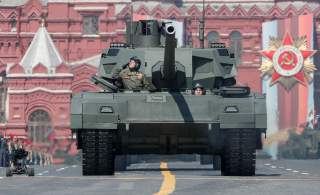Russia Won't Start a (Conventional) War in the Baltics
Western military planners need to reorganize and align units in such a way that they can handle Russian hybrid warfare, while preparing for a conventional attack as a secondary measure.
This is a problem that NATO military planners fail to see. Russia will not risk a full conventional operation against even the smallest of NATO countries. Instead, Russia will rely on fighting the West along blurred lines of war and peace, something that Western militaries are struggling to adapt to. Putin wants to put pressure on Europe to show that his country is still a world power; he would gain very little material good from annexing the Baltics. Russian leaders want to make NATO appear weak, while simultaneously avoiding a full out war. Putin sees value in destabilizing neighboring countries that want to leave their sphere of control by aligning with the U.S. and NATO. Western leaders must come to the realization that the possibility of hybrid warfare by Russia in the Baltics is very plausible – and winnable for Putin without the proper countermeasures in-place.
Maxwell Stangl is a research assistant in the Department of Military & Strategic Studies at the U.S. Air Force Academy. The views expressed are those of the author and do not reflect the official position of the U.S. Air Force Academy, U.S. Air Force, Department of Defense, or the U.S. Government.
Image: Reuters

